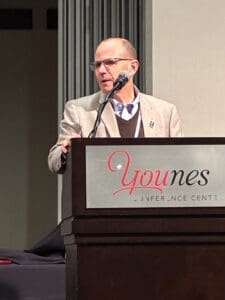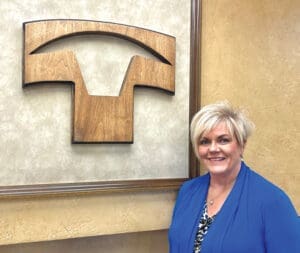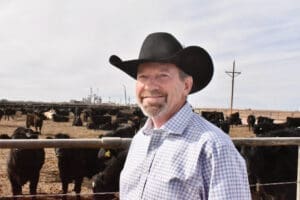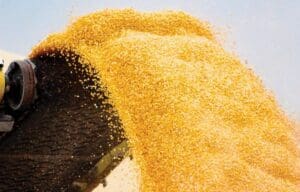By Chris McClure Contributing Editor
Will Rogers once said, “An economist’s guess is liable to be as good as anybody else’s.”
I don’t claim to be an economist, although my diploma might indicate otherwise, but considering Will Rogers’ comment, it probably doesn’t matter.
The market always finds a way to balance supply and demand. We produce more pounds with fewer animals. We import more feeder cattle. Consumers substitute products. The price goes up, the price goes down, the market clears. It’s all basic economics in a reasonably free market. We don’t always like it, and we rarely are 100 percent correct in our read of the tea leaves, but we make decisions based on one fundamental market fact – supply and demand will find a balance.
Isolationism is often desired by those who fail to see that they operate within a global economy.
I visited earlier today with a young man from Uganda. His country is heavily dependent on agriculture, and they are one of the top coffee producers. That hasn’t always been the case. The failure of crops in other countries has allowed them to become a major player in that market. I don’t know about you, but I like my coffee in the morning.
He also told me about their export of many fruits and vegetables. In particular, he mentioned plantains (think small bananas). The plantains are very inexpensive and abundantly available throughout many regions of Uganda. They are relatively very expensive here in the United States. Much of the difference is because of the freight. It’s a long boat ride from Uganda to this country.
The young man continued to tell me that food was abundant in his country and very inexpensive. He mentioned that it typically took the equivalent of $4 per day for three meals of nutritious food. Most of that food was grown and sold locally. They do not have the equivalent to our large supermarkets; they have small vendors who sell products they grow in their small holdings.
He also spoke of nationwide zoning for agricultural production. I asked if it was mandatory or was it enforced in some other manner. He told me that it was voluntary and encouraged through subsidies. If an area was primarily suitable for growing coffee, the government would subsidize the planting, harvesting and processing of the crops only in that area. The same is done with other crops.
I asked about land ownership, and he told me there are small free holdings, government holdings, large, granted holdings and lease holdings. Most of the production is on free holdings and lease holdings.
The thing that struck me most was their dependence on exports. Because their agricultural production is so abundant, they must have strong export relationships to maximize the benefit of that production.
We require the same thing. If we take an isolationist approach to beef production, we will find that we are no longer able to obtain plantains or bananas or pineapples or many other products that go so well with our beef. Agriculture is one of the most globalized of all economies. Trade between nations is built based on competitive advantage. We have that advantage in the production of high-quality beef. We don’t have it in the production of many of the fruits and vegetables mentioned above.
Why do we keep forgetting that? Why do we sometimes think that the solution to keeping cattle prices high is closing our border to imports? If we do that, we will never expand the cow herd; we will just drive consumers to competitive products, and we will lose in the international markets.
How much more volatile would the world be without agricultural trade?
I’m a free-market advocate. If we can’t produce a product competitively, we should find something else to produce. The government, however, must occasionally take a role when it comes to food production. Food is a national security issue. We must always be able to feed ourselves or we will fall to the mercy of others.
Healthy trade relations will reduce the likelihood of conflict. It is much more difficult to consider attacking a trade partner than it is to attempt to acquire products to fill a shortage. The Japanese didn’t attack Pearl Harbor on a whim, it was preemptive to ease the capture of oil production in Southeast Asia.
How much more volatile would the world be without agricultural trade?





